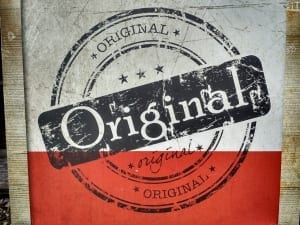How to start an amazon private label business

An Amazon Private Label Business is a popular option for starting your own business. In this type of business, you create a shop/store and sell your products on Amazon. This can be a great way to start entrepreneurship because it’s relatively low-cost and low-risk.
Keep reading if you’re interested in starting an Amazon Private Label Business. This article will give you an overview of what you need to do to start.
1. Research Your Niche
When it comes to Amazon’s private label, research is everything. You need to know your niche inside and out before getting started. This means understanding the needs and wants of your target market and the competition.
The research will help you source a product that meets the needs of your target market and gives you a competitive advantage. It will also help you price your product correctly and choose the keywords for your listing.
Without proper research, it won’t be easy to succeed with Amazon’s private label.
However, if you want to avoid getting into the hectic process of researching, a quick and easy way is to take help from experts who are providing their services.
One such example is apical ecommerce which gives a helping hand to start, scale and automate your Amazon business.
2. Pick Your Products
After selecting your niche, it’s time to pick some products you will sell. While doing so, consider your customers’ needs and wants. What will make their lives easier or better?
Many sellers choose a product they think is great without considering whether there is a market for it. They create a listing and start selling, but they don’t get any sales because no one searches for their product.
The key to Amazon’s success is prioritizing your customers over your product. Find a product or products that have a lot of demand and build your brand around that.
Don’t force a product into a market that doesn’t want it. If you can do that, you’ll be well on your way to success as a private-label seller on Amazon.
3. Find an Experienced Supplier
The next step is to find a reliable manufacturer or supplier for your product. It can be challenging, but there are a few ways to do it. You can attend trade shows, or even reach out to potential suppliers directly.
So, it’s important to research and ensure you are working with a reputable supplier. You can read online reviews, ask other businesses for recommendations, or visit the manufacturer’s facility to get a feel for the company.
Once you have found a manufacturer or supplier you can trust, you can start working on developing a good relationship with them. This will help ensure a smooth process and quality products for your Amazon business.
4. Focus on Packaging and Branding
When selling on Amazon, two aspects can make or break your product: packaging and branding. These two elements can help you differentiate your products from the competition and make them more appealing to customers.
Packaging is important because it is the first thing customers will see when they see your product. It is important to make sure that your packaging is well-designed and eye-catching.
Branding is also important because it can help customers to remember your product and to associate it with a certain image or feeling.
If you want to be successful in selling products on Amazon, make sure to focus on packaging and branding. These two elements can make a big difference in how customers perceive your product and help you stand out from the competition.
5. Choose the Fulfillment Strategy
When it comes to Amazon fulfillment, there are a few different options to choose from. You can opt for Amazon to fulfill your orders, which can be a great option if you don’t have the time or resources to handle fulfillment yourself. However, it’s important to note that Amazon will take a cut of your profits in exchange for their services.
If you have the time and resources to handle fulfillment, go that route. This can be a great way to save on costs, but it requires more work.
Regardless of your choice, it’s important to plan ahead and ensure you have a fulfillment strategy in place before you start selling on Amazon.
6. Create Product Listing
When creating a product listing for your private-label products, be sure to include the following:
- A brief description of the product
- A photo or image of the product
- The price of the product
- The benefits of the product
- A call-to-action (CTA)
Your product listing should be clear, concise, and compelling. Remember to highlight your product’s unique selling points (USPs) and why customers should buy it. Include a CTA so that customers know what to do next.
If you follow these tips, you will be well on your way to creating a successful product listing for your private-label products.
7. Run Amazon PPC Ads
Well, this is when things start getting tougher as now you have to sell your products. And everyone knows that getting the first sale on Amazon is very complicated. But did you know that you can use Amazon PPC ads to help you get that first sale?
Amazon PPC is a form of advertising that allows you to pay for placement on the Amazon marketplace. When customers search for products on Amazon, your ad will appear in the search results, allowing you to reach more shoppers.
Conclusion
To summarize, starting an Amazon private label business is a great way to get started in ecommerce.
The process is relatively simple and doesn’t require a lot of upfront investment. The key is finding a niche product, sourcing it from a reliable supplier, listing your product on Amazon, driving traffic to your listing, and getting sales.

